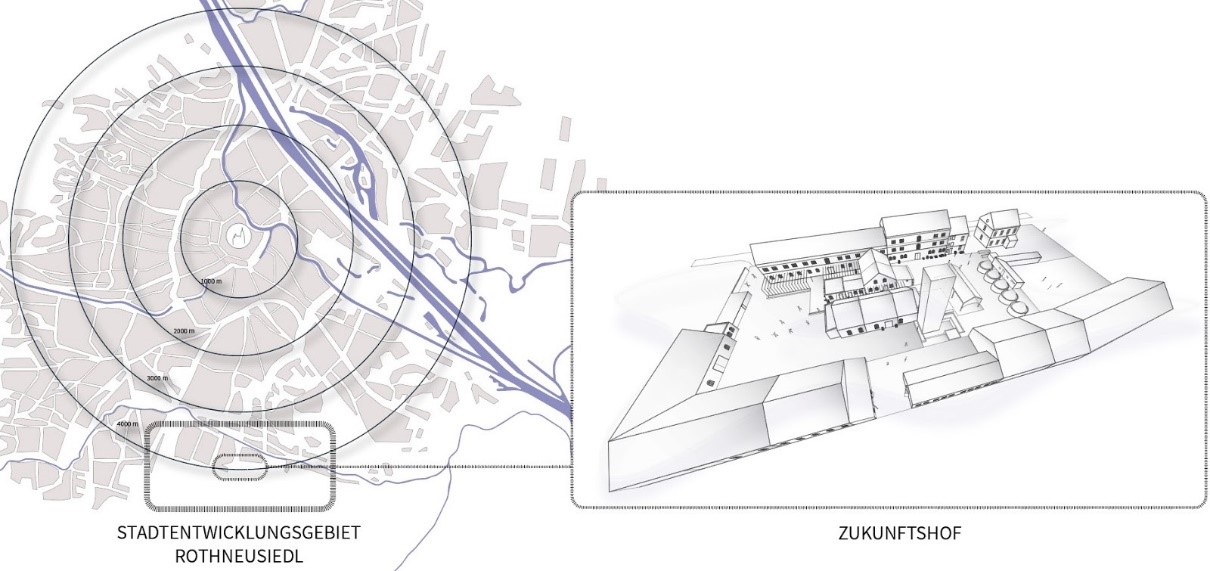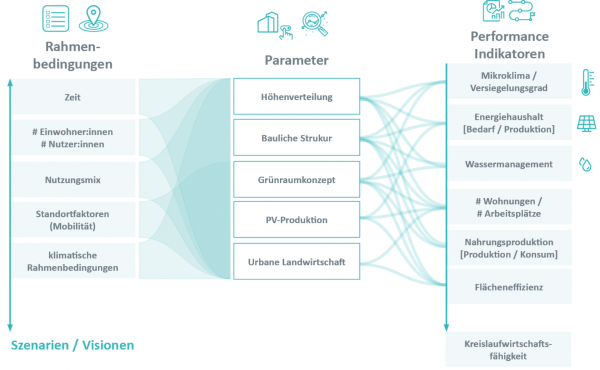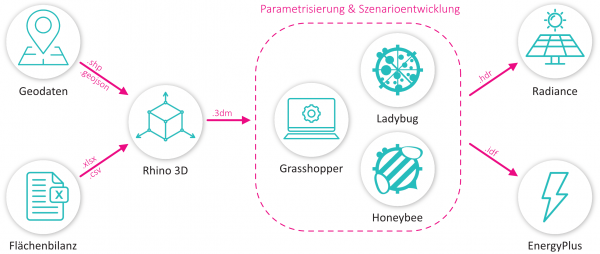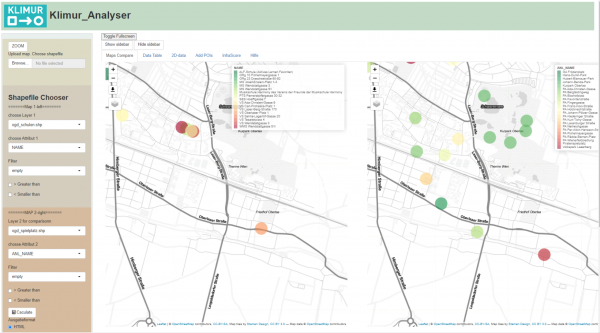KLIMUR: climate-resilient urban resource management for the case study of Zukunftshof and Rothneusiedl
Short Description
Motivation and research question
Climate change and the associated consequences represent one of the greatest global challenges of our time (IPCC, 2018). Against this background, cities and the circular economy are of particular importance. One reason for the hesitant implementation of measures to establish or strengthen the circular economy at city level is the lack of validated guidelines and proven methods. There are fundamental research gaps in this area, ranging from the survey of the circular potential of a region to any management aspects (Levoso et al., 2020). Furthermore, there is the problem that there are no planning and simulation tools yet that can map the complex interactions of the circular economy at the city or district level.
Initial situation/status quo
The exploratory project is intended to contribute to the development of resilient climate-neutral urban districts with high resource and energy efficiency, increased use of renewable energy sources and a high quality of life. Furthermore, it will contribute to the optimization and adaptation of urban infrastructure and services.
Project contents and objectives
The case study Zukunftshof was used to explore the possibilities of turning an old farm into a showcase project for innovative urban agriculture and climate-sensitive urban development. The Zukunftshof is to become the starting point for a sustainable energy and resource cycle system in Vienna's Rothneusiedl urban development area.
For this purpose, KLIMUR developed a methodology and instruments to accompany the planning and decision-making processes for the realization of local resource cycle management (energy, nutrients, water) and integrated district energy concepts.
Methodical procedure
For the Zukunftshof case study, resource flows (biomass, nutrients and water) were determined, analyzed and simulated in addition to energy flows (heating, cooling and electricity).
The multi-criteria analysis, optimization and evaluation models used allow assessments of ecological and energy indicators and take into account the economic framework conditions of the implementation variants.
The partly conflicting goals were presented and discussed in the planning and coordination process with the stakeholders. From this, possible development scenarios on a neighborhood scale were derived for a future Zukunftshof demonstration project and for the Rothneusiedl district.
Results
As part of the KLIMUR project, a methodology for qualitative and quantitative spatio-temporal analyses for the implementation of the "Zukunftshof" development concept was developed with the aim of obtaining a sound basis for realization decisions during the planning and implementation process. One of the tools used is the KLIMUR-Analyzer, a WebGIS application that is used for data visualization, analysis and participatory collection and evaluation. In addition, various development scenarios were developed for the Zukunftshof, which show possible interactions with the future Rothneusiedl urban development area. In addition, financing strategies for the realization of the demonstration project were derived. Finally, a roadmap was drawn up that defines concrete steps for the implementation of the development scenarios at the Zukunftshof.
Conclusions
The developed methodology supports planning, evaluation and operation. This digital planning framework enables the targeted involvement of stakeholders in the form of participatory processes already in early project phases, so that their needs and wishes can be taken into account. The holistic evaluation of the scenarios supports decision-makers with a fact-based foundation in discussions and decisions.
The method development and the discussions with the stakeholders clearly showed the challenges for the implementation of a local circular economy. On the one hand, data was not available or was available in very different quality and resolution, which made it difficult to assess interactions in high temporal resolution. For an ecologically and economically sustainable circular economic system, however, a precise consideration of resource flows is of great importance.
Outlook
During the exploratory project, the possible application and necessary extensions of the developed method were discussed with various stakeholders, and a follow-up project is currently being worked on.
Project Images
Terms of use: The pictures listed underneath the header “Project Pictures” originate from the projects in the frame of the programmes City of Tomorrow, Building of Tomorrow and the IEA Research Cooperation. They may be used credited for non-commercial purposes under the Creative Commons License Attribution-NonCommercial (CC BY-NC).
Project Partners
Project management
- Dr. Ernst Gebetsroither-Geringer
- Center for Energy/AIT Austrian Institute of Technology Ltd
Project or cooperation partners
- alchemia-nova research & innovation non-profit Ltd
- Institute of Spatial Planning, Environmental Planning and Land Rearrangement/University of Natural Resources and Life Sciences, Vienna
- vertical farm institute Ltd
- Zukunfsthof eG
Contact Address
Ernst Gebetsroither-Geringer
Giefinggasse 4
A-1210 Wien
Tel.: +43 (505) 50 4582
E-mail: Ernst.Gebetsroither@ait.ac.at
Web: www.ait.ac.at/city







